
Course Title: Quantity Surveyor Course In Rawalpindi
Quantity surveying is a field of study that focuses on the management of construction projects from the initial design phase to the final construction stage. A quantity surveyor is responsible for ensuring that a project is completed on time, within budget, and to the required standard. They are also responsible for managing costs and providing accurate estimates for materials and labor. In quantity surveyor training in Rawalpindi, students will learn the key concepts and principles of quantity surveying and gain the skills necessary to pursue a career in the field. Quantity surveyor Training programs in Rawalpindi offer a comprehensive curriculum that equips students with practical knowledge and real-world skills essential for success in the construction industry.
Course Outline of quantity surveyor course rawalpindi
Module 1: Introduction to Quantity Surveying course
- History of quantity surveying training in Rawalpindi
- Role and importance of quantity surveying in the construction industry.
- Skills required for a successful quantity surveyor.
Module 2: Building Technology
- Construction materials
- Structural systems in quantity surveyor training
- Construction techniques
- Sustainable building practices
Module 3: Construction Law
- Contracts
- Tort law
- Construction disputes and resolutions.
Module 4: Cost Estimating and Management in Quantity Surveyor Course
- Identification of project costs
- Cost estimation techniques
- Budget development and management
- Cost control can be managed through quantity surveyor
Module 5: Project Management
- Project planning
- Scheduling
- Risk management
- Quality assurance and control.
Module 6: in quantity surveyor course you learn Procurement
- Selection of contractors and suppliers
- Tendering processes define quantity surveyor training
- Contract negotiation and management.
Module 7: Measurement and Quantification
- Standard measurement techniques
- Preparation of bills of quantities as part of quantity surveyor training.
- Variations and valuations
Module 8: Sustainability and Environmental Management
- Identification of environmental risks
- Sustainable construction practices
- Waste management
Module 9: Building Information Modelling (BIM)
- BIM overview and principles included in quantity surveyor training.
- BIM applications in quantity surveying
Module 10: Professional Practice
- Ethics and professional conduct
- Continuing professional development (CPD)
- Professional organizations and their role in quantity surveying.
Career Opportunities
Completing a course in Quantity Surveying course in Rawalpindi can lead to a variety of career opportunities in the construction industry, including:
- Quantity Surveyor: This is the most common career path for graduates in quantity surveyor training. A quantity surveyor is responsible for managing costs, ensuring that projects are completed within budget, and providing accurate estimates for materials and labor.
- Project Manager: Quantity Surveyors often work closely with project managers, so this is another potential career path.
- Construction Estimator: Quantity surveyors who complete a quantity surveyor course in Rawalpindi are well-equipped to work as construction estimators, providing accurate cost estimates for materials and labor on construc
- Construction Estimator: Quantity surveyors who complete a quantity surveyor course in Rawalpindi are well-equipped to work as construction estimators, providing accurate cost estimates for materials and labor on construction projects.
- Contract Administrator: With training from a quantity surveyor course, professionals can easily transition into contract administrator roles, managing contracts between clients, contractors, and suppliers, and leveraging their knowledge of contracts and legal matters.
- Construction Consultant: Graduates of a quantity surveyor training program can work as construction consultants, providing expert advice to clients on all aspects of construction projects.
- Facilities Manager: Quantity surveyors with a background from a quantity surveyor course in Rawalpindi can transition into facilities management roles, overseeing the operation and maintenance of buildings and facilities with their knowledge of building systems and maintenance practices.
- Construction Lawyer: Quantity surveyors who have received quantity surveyor training with a focus on construction law can pursue careers as construction lawyers, advising clients on legal matters related to construction projects.
Overall, a course in Quantity Surveying provides students with a diverse range of career opportunities in the construction industry. Graduates can work in a variety of roles, from project management and contract administration to construction law and consulting.
Conclusion
This quantity surveyor course in Rawalpindi provides students with a comprehensive understanding of the principles and practices of quantity surveying. Upon completion, students will have the knowledge and skills necessary to work in the construction industry as a quantity surveyor or in related roles. The quantity surveyor training covers a wide range of topics, including building technology, cost estimating and management, project management, procurement, and sustainability and environmental management. Additionally, the course includes instruction on construction law, BIM, and professional practice. Overall, this quantity surveyor course offers an excellent foundation for a successful career in quantity surveying.
The Quantity Surveyor (QS) is a professional working within the construction industry concerned with construction costs and contracts. Services provided by a Quantity Surveyor training in Rawalpindi may include:• Cost planning and commercial management during the entire life cycle of the project from inception to completion.
• Value engineering.
• Risk Management and calculation.
• Procurement advice and assistance during the tendering procedures.
• Commercial Management and Contract Administration.
• Assistance in dispute resolution.
• Asset Capitalization.
• Interim payment assessment.
• Cost Management process.
• Claim the extra cost of the design variation.
A Quantity Surveyor (QS) is a construction industry professional with expert knowledge on construction costs and contracts. They are not to be confused with Land Surveyors or Land Survey Engineers.
A Quantity Surveyor (QS) course in Pakistan typically covers a range of subjects related to construction and project management. Here’s a general outline of topics that might be included:
Introduction to Quantity Surveying training:
- Overview of the role of a Quantity Surveyor course.
- Historical background and evolution of Quantity Surveying.
Construction Technology
- Understanding construction materials and methods.
- Building construction techniques and processes.
- Modern construction technologies and their applications.
Measurement and Estimation
- Principles of measurement and quantification of construction works.
- Techniques for taking off quantities from drawings and specifications.
- Estimating costs of construction projects as part of the quantity surveyor course.
Contract Management
- Types of construction contracts.
- Contract administration and documentation.
- Claims management and dispute resolution.
Cost Planning and Control
- Cost planning techniques for construction projects.
- Quantity surveyor course includes budgeting and cost control methodologies.
- Cost monitoring and reporting.
Procurement and Tendering
- Procurement strategies and methods.
- Tendering process and procedures.
- Evaluation of tenders and awarding contracts.
Legal and regulatory framework covered in the quantity surveyor course.
- Understanding of construction laws and regulations in Pakistan.
- Contractual obligations and liabilities.
- Health, safety, and environmental considerations.
Project Management
- Project planning and scheduling.
- Resource management and optimization included in the quantity surveyor course.
- Risk management and mitigation strategies.
Value Engineering
- Principles of value engineering.
- Techniques for optimizing project value while minimizing costs.
Professional Practice
- Ethics and professional conduct.
- Communication skills and interpersonal relations.
- Continuing professional development.
Case Studies and Practical Applications
- Resource management and optimization are key components of the quantity surveyor course.
- Practical exercises in quantity surveying and cost management.
Software Applications
- Introduction to relevant software tools used in Quantity Surveying course in Rawalpindi (e.g., AutoCAD, MS Excel,
- Building Information Modeling (BIM) software).













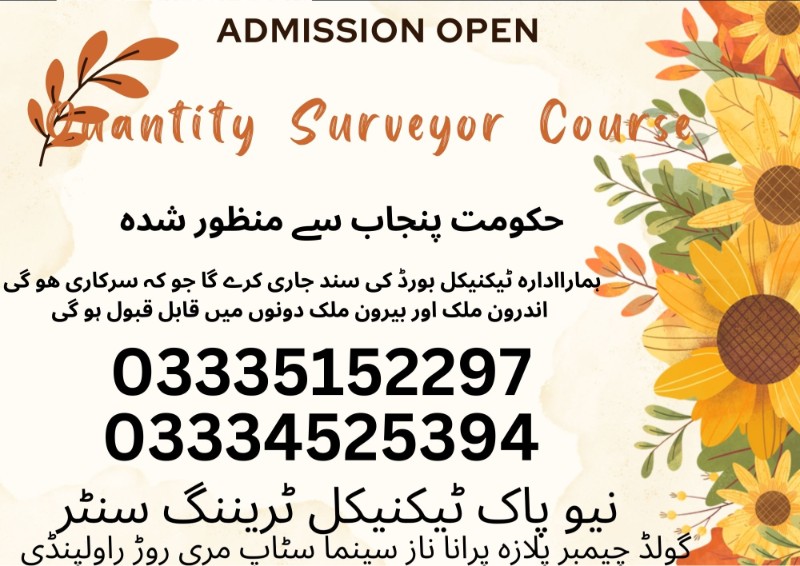

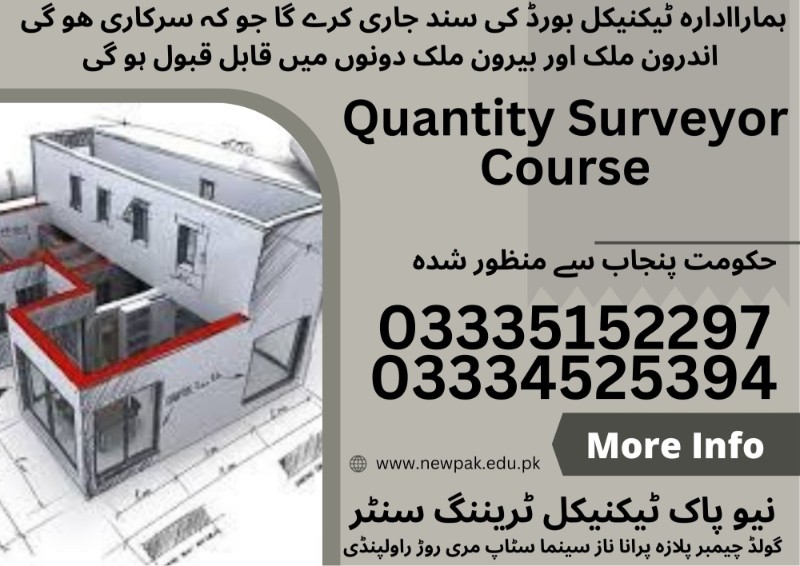

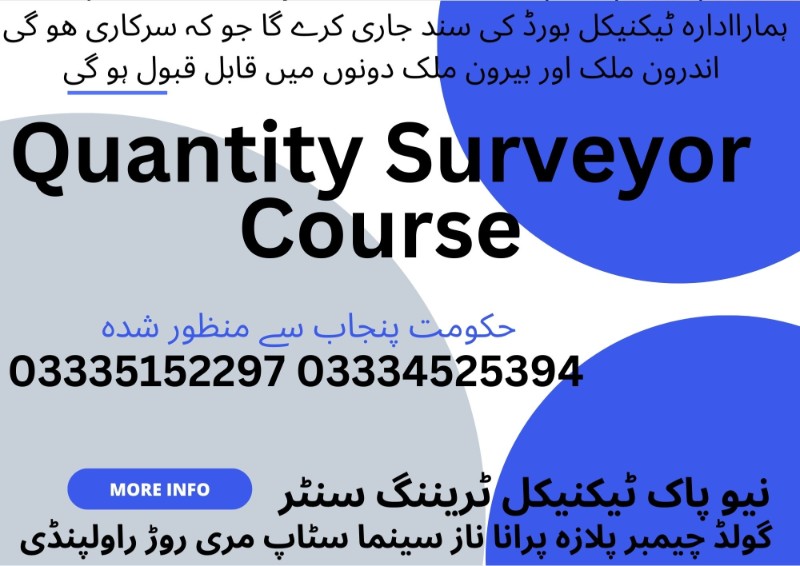

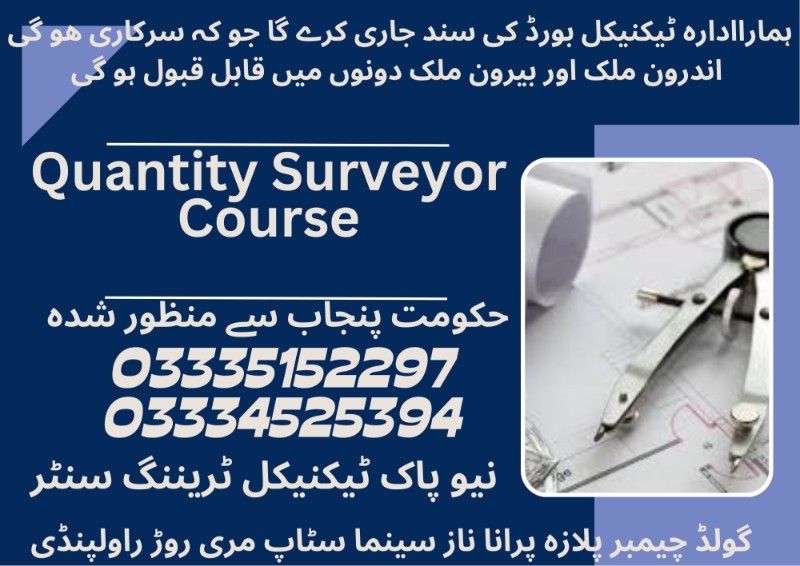
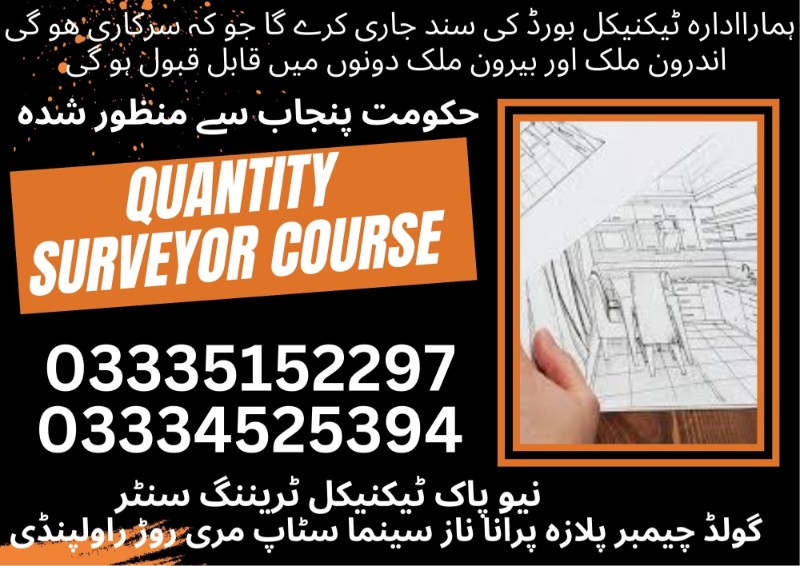

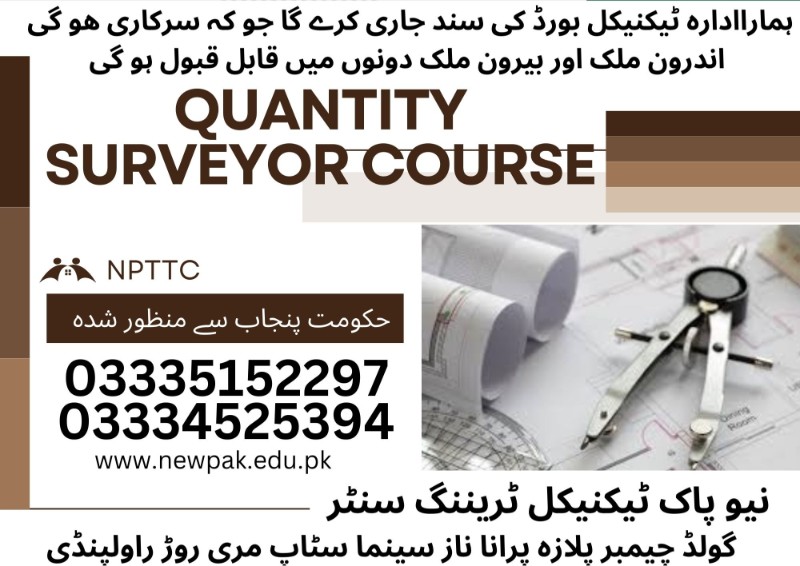
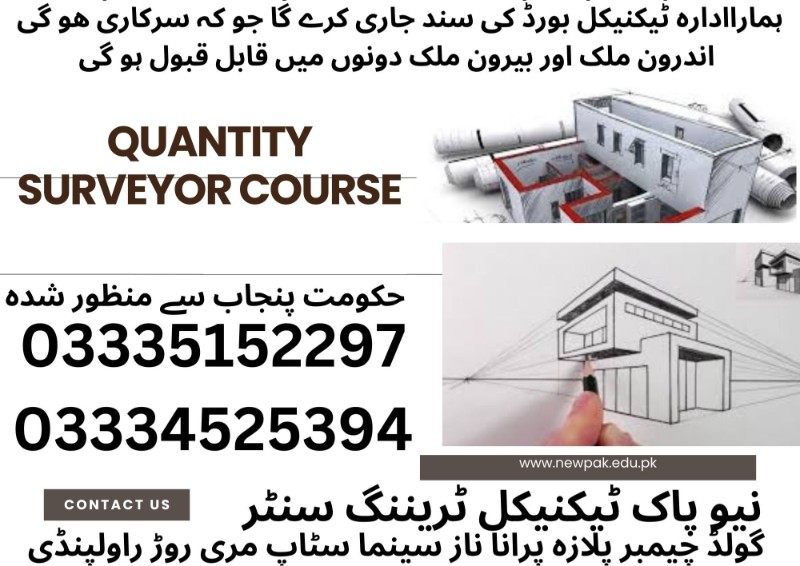



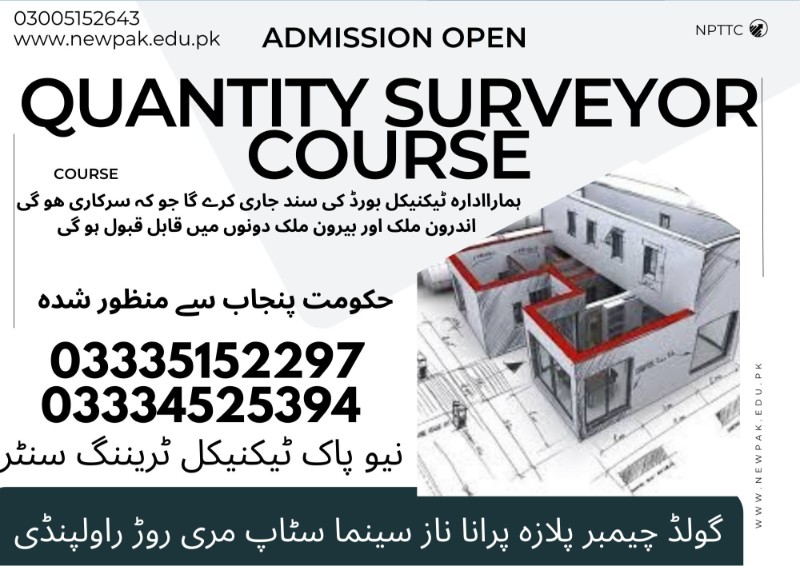
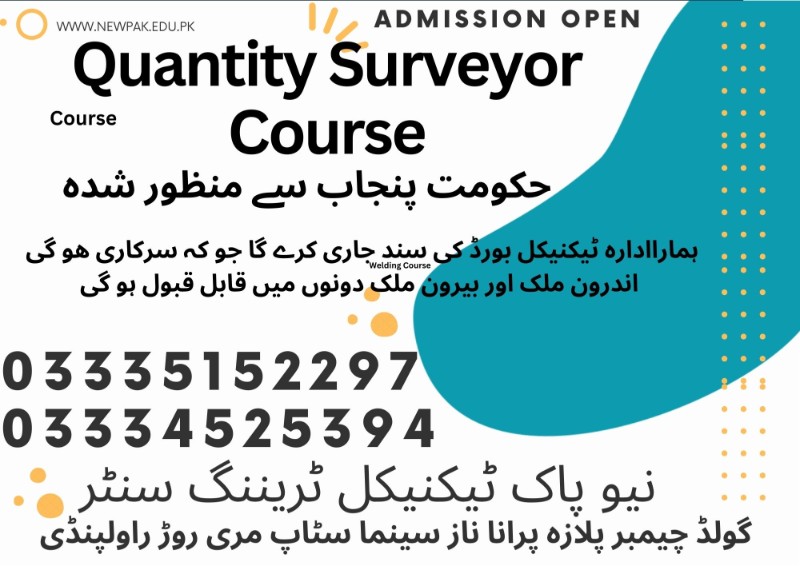

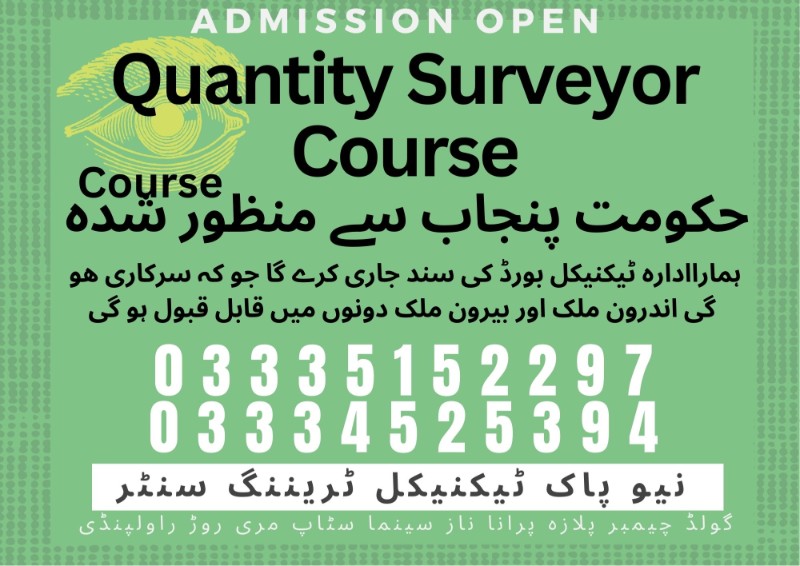


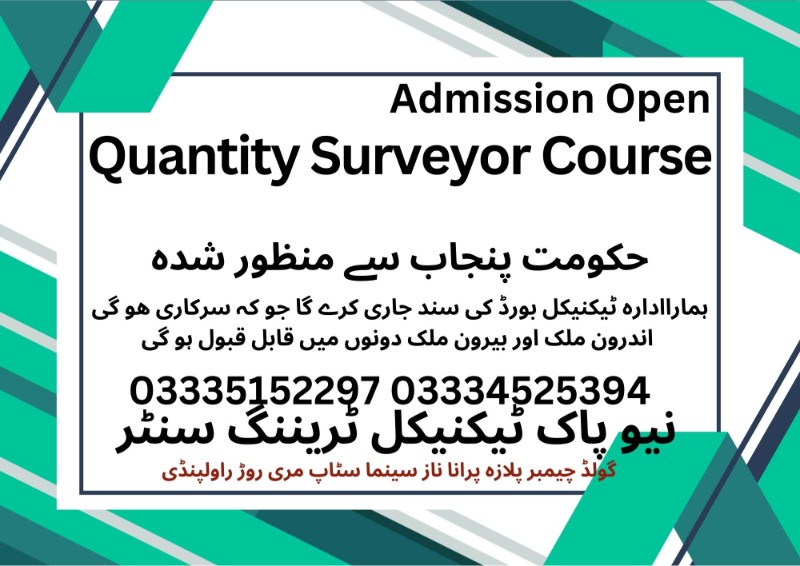
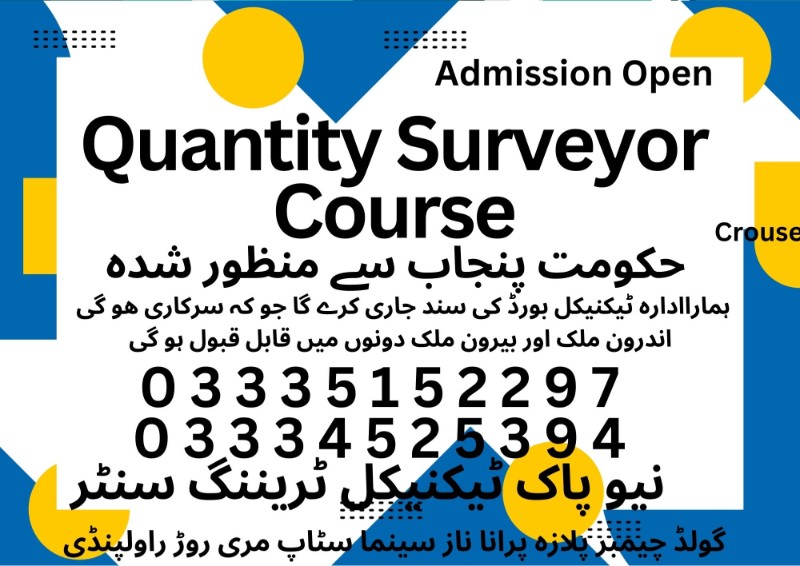





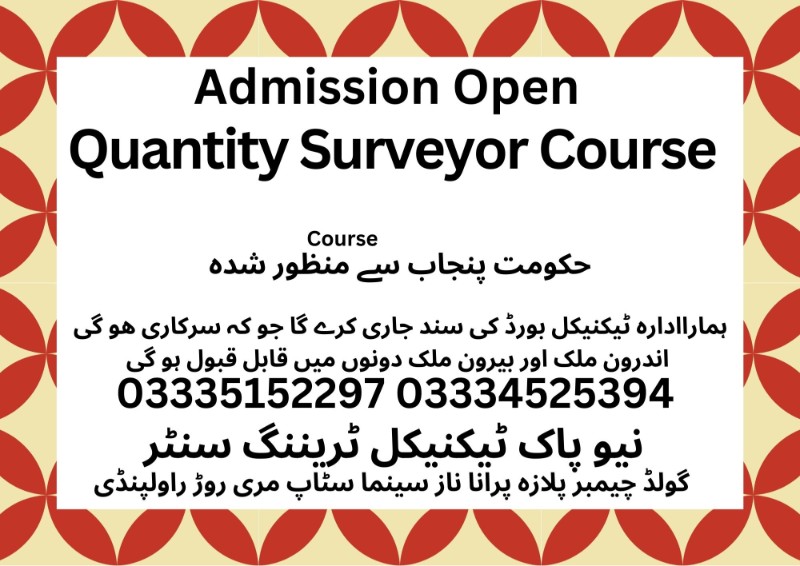





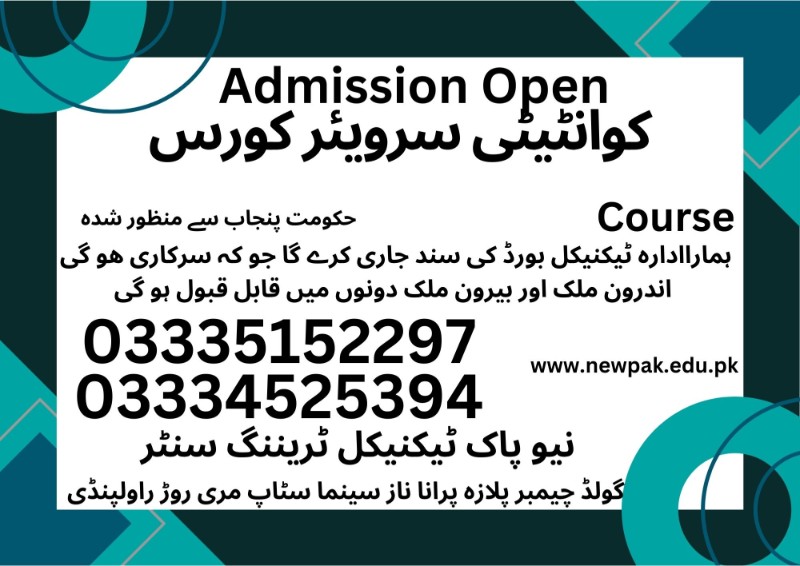
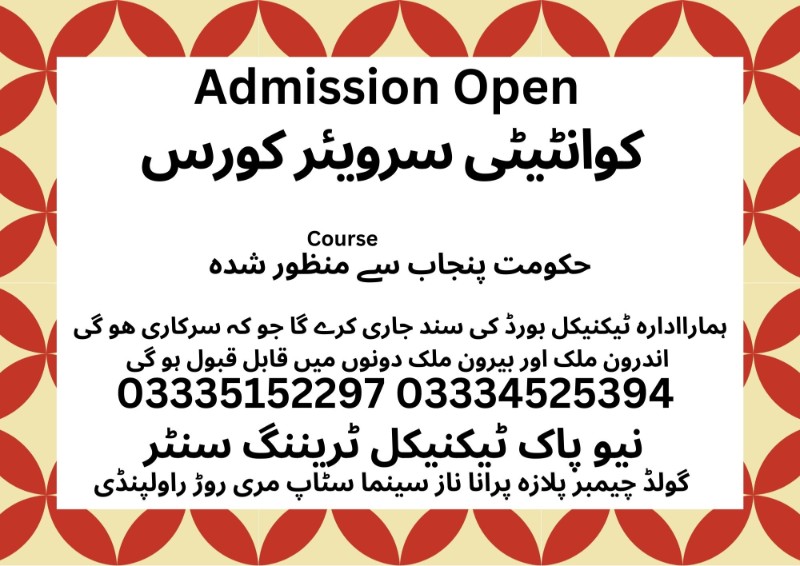










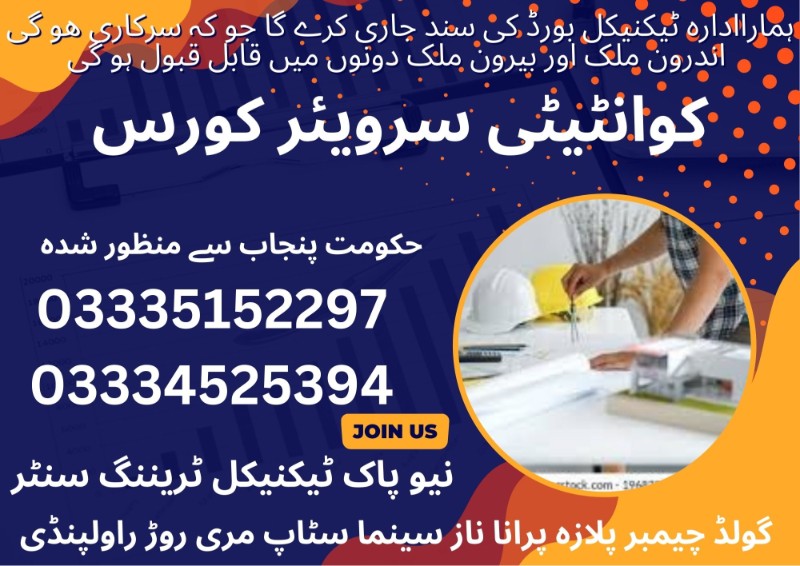
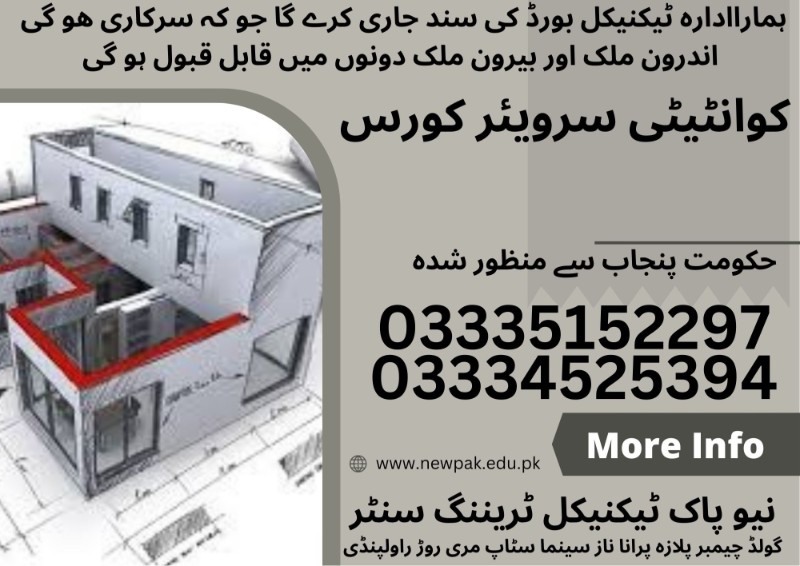
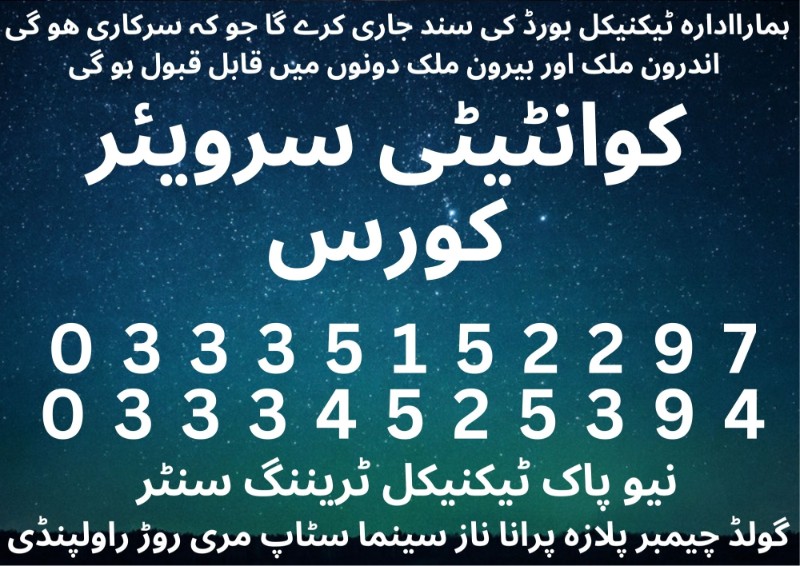
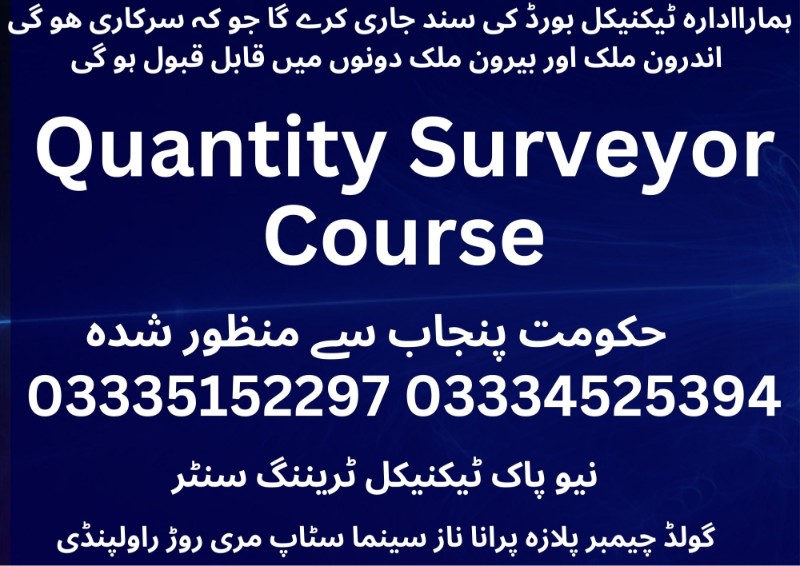


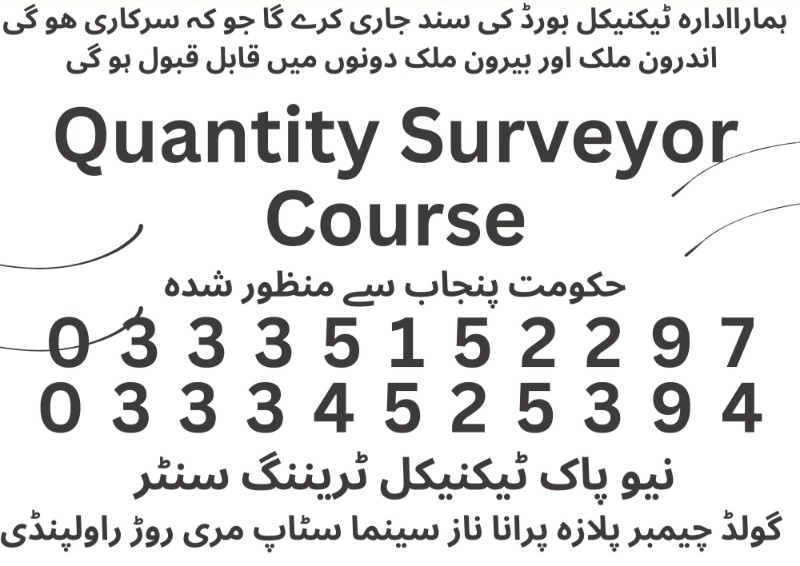
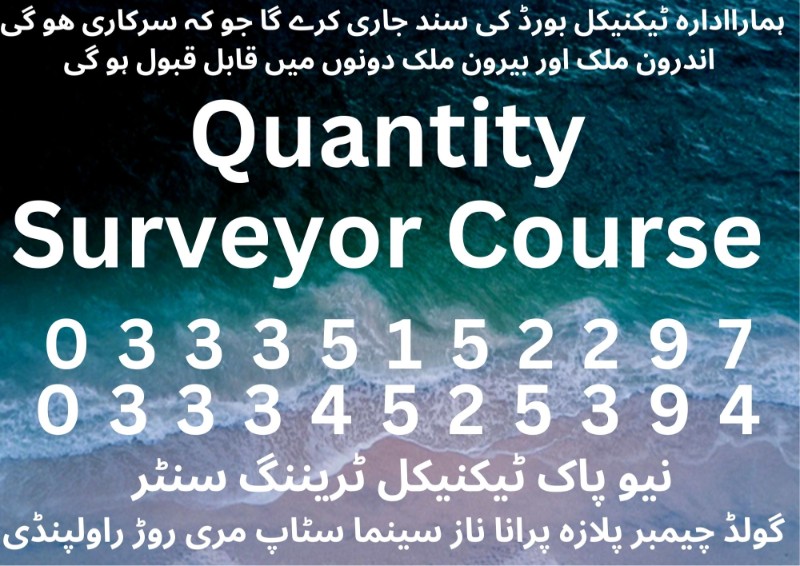
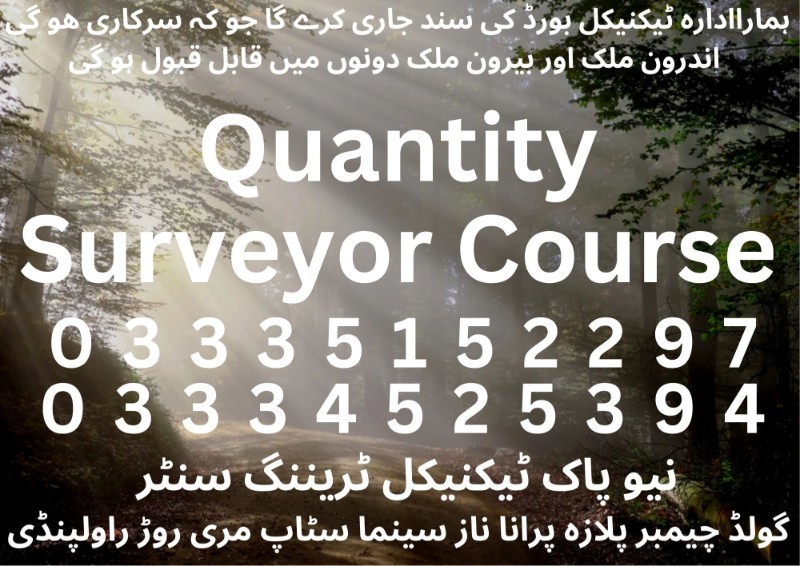
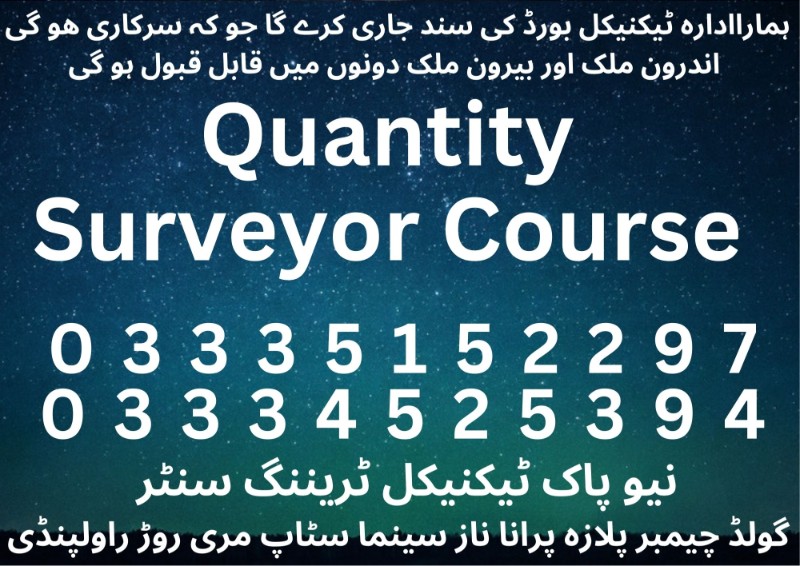
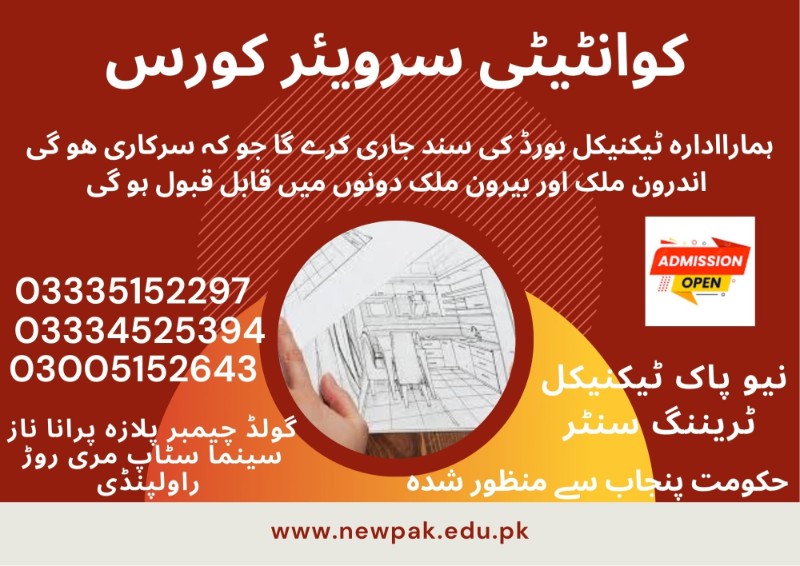
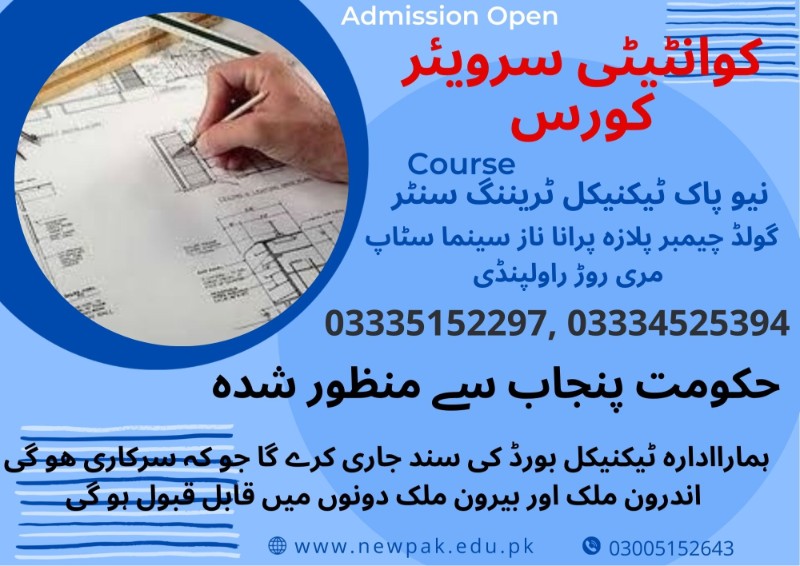
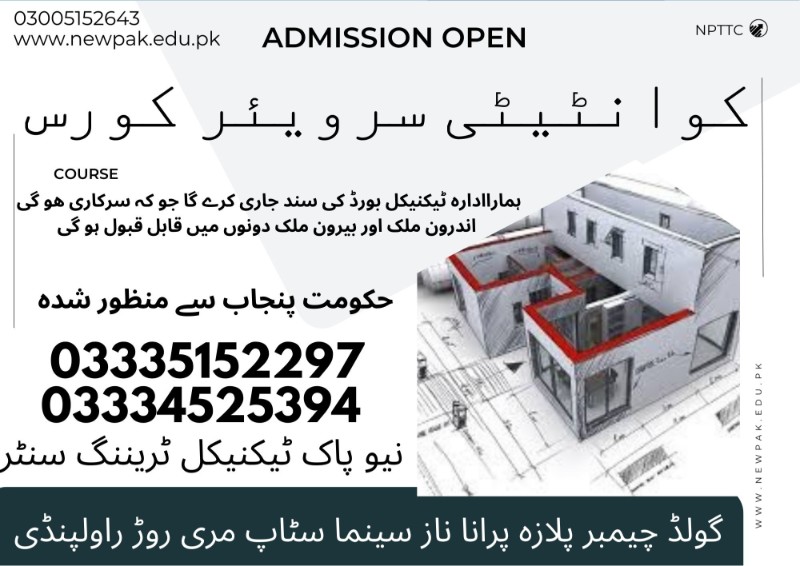
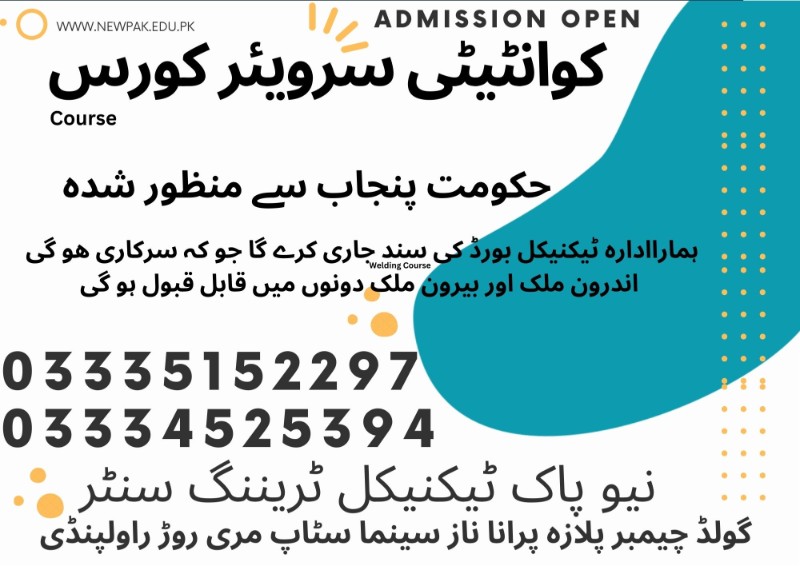

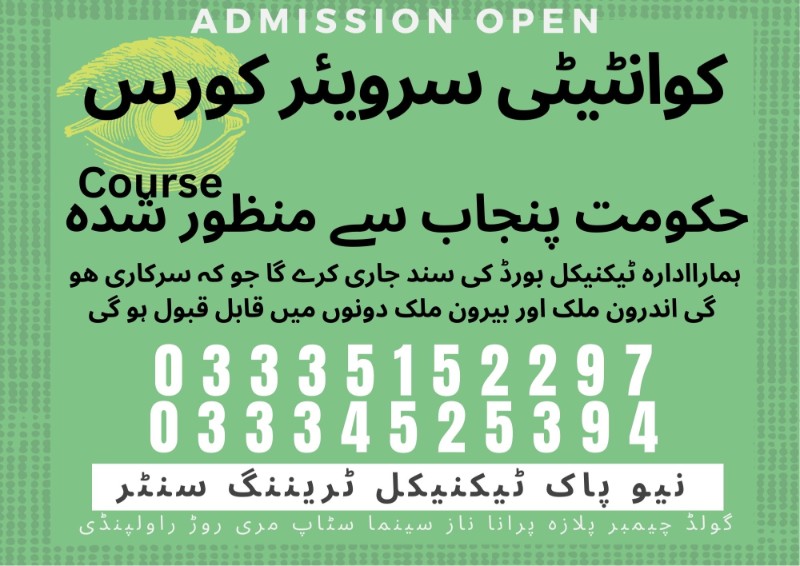


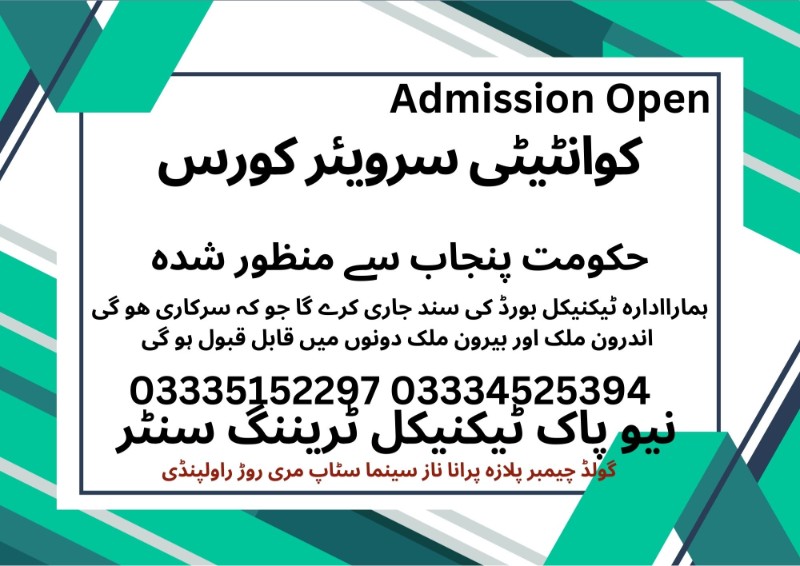
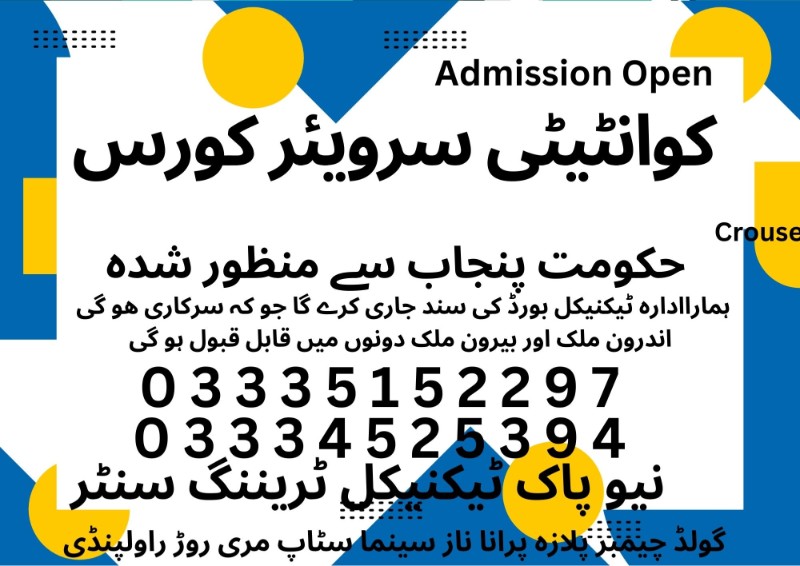



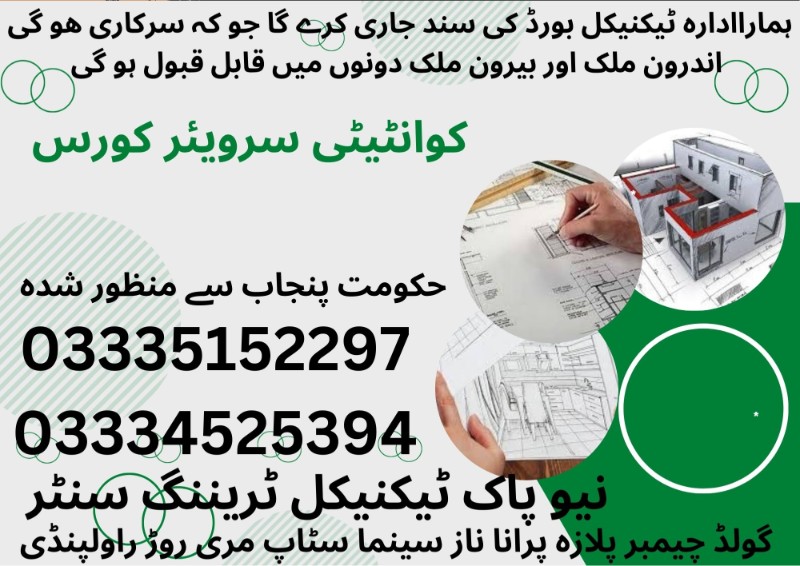
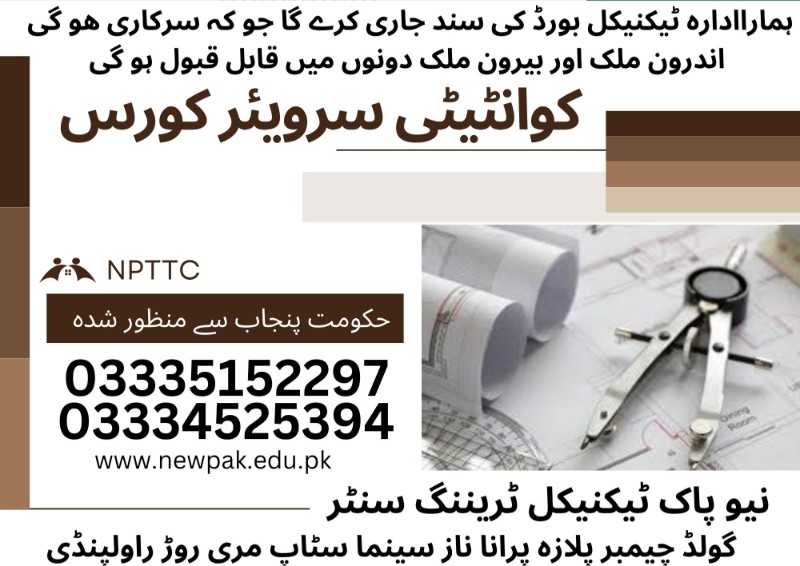
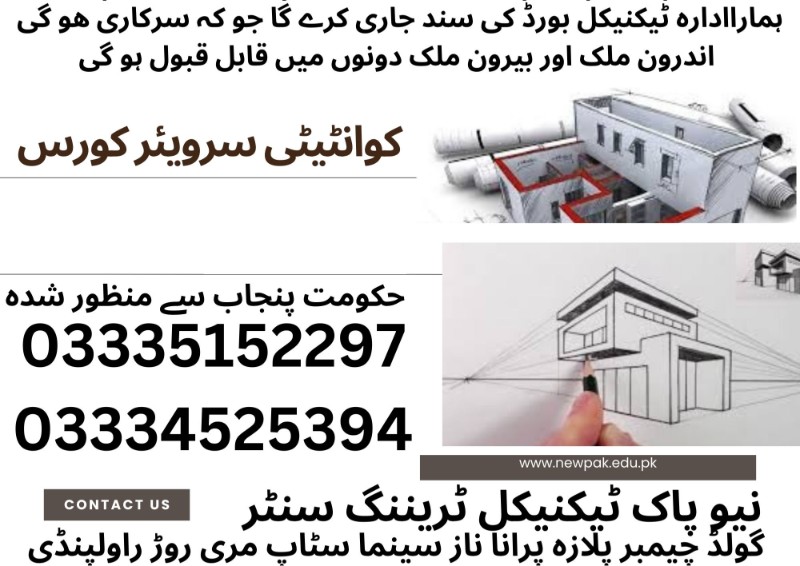




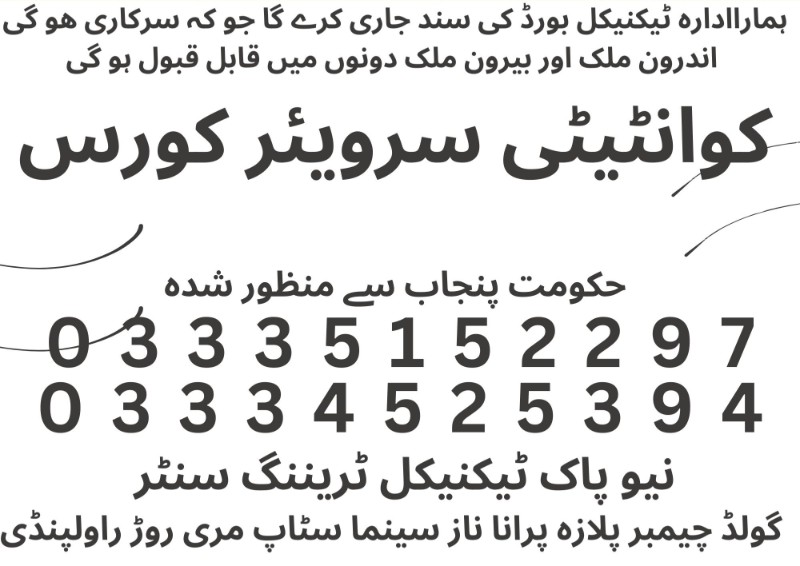
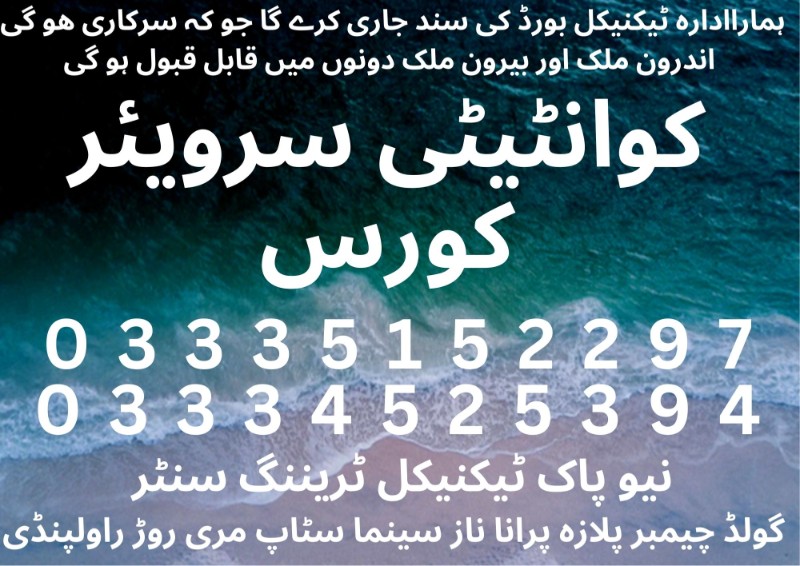
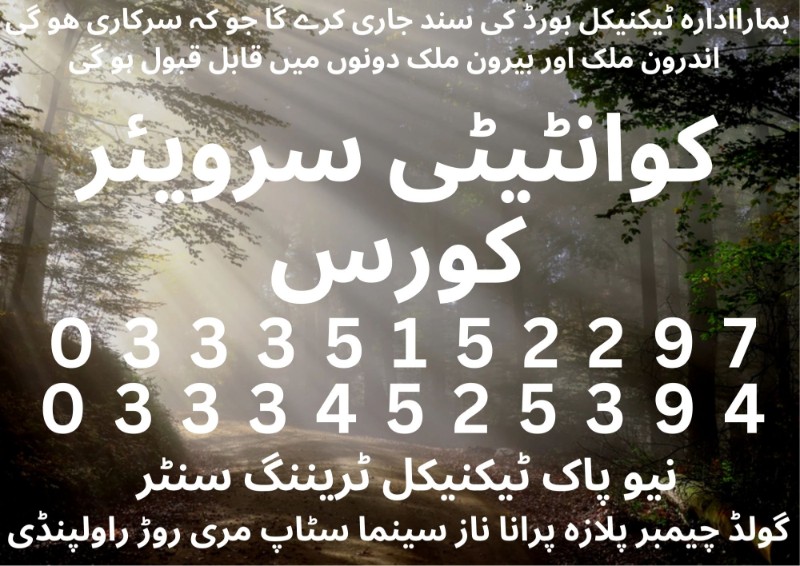



Leave a Comment